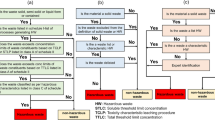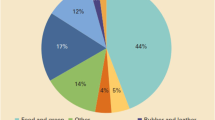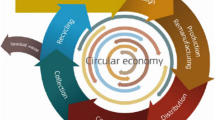Abstract
Energy efficiency and resource savings have become a significant part of the base camp planning process. It is especially important in the case of forward operating bases that are dependent on supplies of fuel, water and other resources. Protection of supply convoys dramatically increases the cost of each commodity; therefore, even small-scale savings are very reasonable. However, a simple installation and operation as well as a minimum maintenance are required. This paper deals with saving measures for laundry, hot water, and potable water production. In the case of laundry, it is water re-use, laundry service, and efficiency increase of machines. Forward operating bases are typically equipped with fuel oil-powered generators for electricity production. There is a great potential for waste heat recovery for hot water preparation. In the case of potable water production, it is transformation of sea or brackish water into potable water using evaporation. The benefits of the proposed measures are demonstrated in a case study considering a base camp with 200 occupants. An economic analysis was carried out to show profitability of these measures. All of them have a pay-back period less than 2 years. Introduction of saving measures in a forward operating base is not only a matter of cost but also of security as suppling units may suffer from enemy assault. The lower need of supplies the lower risk of enemy assault.









Similar content being viewed by others
References
Moser, S.: Overestimation of savings in energy efficiency obligation schemes. Energy 121, 599–605 (2017). https://doi.org/10.1016/j.energy.2017.01.034
Closson, S.: The military and energy: Moving the United States beyond oil. Energy Policy 61, 306–316 (2013). https://doi.org/10.1016/j.enpol.2013.05.102
US Army Corps of Engineers. Base camp development in the theatre of operations.https://www.publications.usace.army.mil/Portals/76/Publications/EngineerPamphlets/EP_1105-3-1.pdf (2009)
Engels, M., Boyd, P., Koehler, T., Goel, S., Sisk, D., Hatley, D., Mendon, V., Hail, J.: Smart and green energy (SAGE) for base camps final report (2014)
Ghanmi, A.: Energy management in military operational camps: a cost-benefit analysis. In: 2014 5th International Renewable Energy Congress (IREC), pp. 1–6 (2014)
Lin, C.S.: Capture of heat energy from diesel engine exhaust. In: Arctic Energy Technology Development Laboratory, Institute of Northern Engineering, University of Alaska Fairbanks. Prepared for: United States Department of Energy, National Energy Technology Laboratory Principle. Investigator: Chuen-Sen Lin DOE. Award Number: DE-FC26-01NT41248 (2008)
Koohi-Fayegh, S., Rosen, M.A.: Optimization of seasonal storage for community-level energy systems: status and needs. Energ Ecol. Environ. 2, 169–181 (2017). https://doi.org/10.1007/s40974-017-0051-1
Ghalehkhondabi, I., Ardjmand, E., Weckman, G.R., Young, W.A.: An overview of energy demand forecasting methods published in 2005–2015. Energy Syst. 8, 411–447 (2017). https://doi.org/10.1007/s12667-016-0203-y
Stehlik, P.: Up-to-date waste-to-energy approach: from idea to industrial application. Springer, Cham, Switzerland (2016)
Shen, M., Young, R., Cui, Q.: The normative feedback approach for energy conservation behavior in the military community. Energy Policy 98, 19–32 (2016). https://doi.org/10.1016/j.enpol.2016.08.014
Makropoulos, C., Koutiva, I., Kossieris, P., Rozos, E.: Water management in the military: the SmartBlue camp profiling tool. Sci. Total Environ. 651, 493–505 (2019). https://doi.org/10.1016/j.scitotenv.2018.09.056
Máša, V., Stehlík, P., Touš, M., Vondra, M.: Key pillars of successful energy saving projects in small and medium industrial enterprises. Energy 158, 293–304 (2018). https://doi.org/10.1016/j.energy.2018.06.018
Liu, S., Butler, D., Memon, F.A., Makropoulos, C., Avery, L., Jefferson, B.: Impacts of residence time during storage on potential of water saving for grey water recycling system. Water Res. 44, 267–277 (2010). https://doi.org/10.1016/j.watres.2009.09.023
Perry, C., Marshall, R., Jones, E.: Bacterial contamination of uniforms. J. Hosp. Infect. 48, 238–241 (2001). https://doi.org/10.1053/jhin.2001.0962
Hatami, M., Ganji, D.D., Gorji-Bandpy, M.: A review of different heat exchangers designs for increasing the diesel exhaust waste heat recovery. Renew. Sustain. Energy Rev. 37, 168–181 (2014). https://doi.org/10.1016/j.rser.2014.05.004
Mezher, T., Fath, H., Abbas, Z., Khaled, A.: Techno-economic assessment and environmental impacts of desalination technologies. Desalination 266, 263–273 (2011). https://doi.org/10.1016/j.desal.2010.08.035
Hossain, S.N., Bari, S.: Waste heat recovery from exhaust of a diesel generator set using organic fluids. Proc. Eng. 90, 439–444 (2014). https://doi.org/10.1016/j.proeng.2014.11.753
Goodall, G.H., Hering, A.S., Newman, A.M.: Characterizing solutions in optimal microgrid procurement and dispatch strategies. Appl. Energy 201, 1–19 (2017). https://doi.org/10.1016/j.apenergy.2017.04.035
Headquarters Department of the Army. Water Support Operations. https://www.marines.mil/Portals/59/Publications/MCRP%203-40D.14.pdf?ver=2017-03-27-095057-740. Accessed 10 Jan 2019 (2015)
Acknowledgement
The research leading to these results has received funding from the Ministry of Education, Youth and Sports of the Czech Republic under OP RDE grant number CZ.02.1.01/0.0/0.0/16_026/0008413 “Strategic Partnership for environmental Technologies and Energy Production”.
Author information
Authors and Affiliations
Corresponding author
Additional information
Publisher's Note
Springer Nature remains neutral with regard to jurisdictional claims in published maps and institutional affiliations.
Rights and permissions
About this article
Cite this article
Touš, M., Máša, V. & Vondra, M. Energy and water savings in military base camps. Energy Syst 12, 545–562 (2021). https://doi.org/10.1007/s12667-019-00354-y
Received:
Accepted:
Published:
Issue Date:
DOI: https://doi.org/10.1007/s12667-019-00354-y




